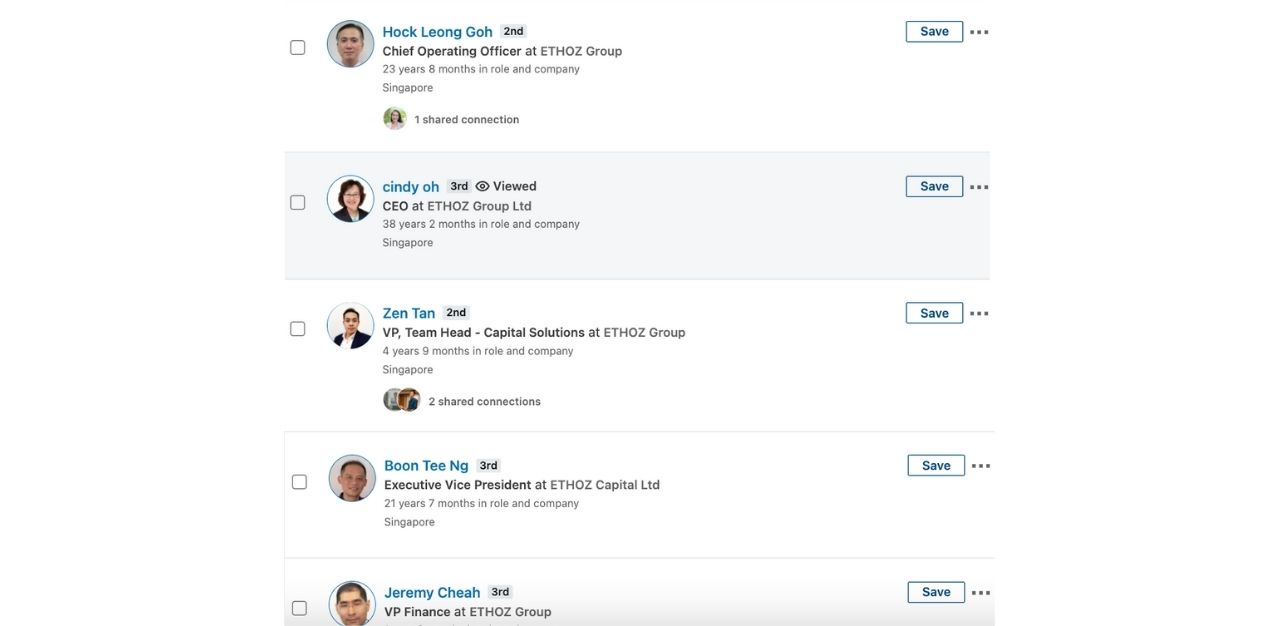“Bring her home for personal use”.
“I will show her my long lasting energy”.
These are just a couple of the lewd remarks exchanged among the hiring team at Ethoz Group, a local car rental firm.
And their smutty exchanges, which included images of the women who applied for jobs with the company, floated to the surface when social justice platform @wakeupsingapore exposed them on 8 February.
The comments objectified prospective women hires, with a post calling one a “massage girl”, and another, wanting to “bring her home for personal use”.
What is notable is that the person at the top of Ethoz Group is a woman.
In the age of closing the glaring gender disparities, especially in the corporate and political environments, the push for more women to be put in positions of power has reached an all-time high in recent years.
Head of AWARE’s Workplace Harassment and Discrimination Advisory Shailey Hingorani says a woman leader should not be held to higher standards to protect other women, any more than a male leader would. That is, comprehensive, accessible, fair policies and procedures around harassment and discrimination are “essential no matter who a company’s leadership is”.
“It doesn’t serve anyone to make assumptions about a company’s efficacy in tackling harassment and discrimination based on the identity of their leadership,” she says.
Ms Shailey further highlights that women leaders might sometimes feel compelled to go along with, or turn a blind eye to “locker room talk” if they want to be “taken seriously” in male-dominated industries.
“While a company may have a number of prominent women leaders or employees, the overall gender composition of the organisation can outweigh the presence of these women. Company culture is made up of more than just its leader, after all,” she adds.
While the responsibility obviously should not lie solely on the shoulders of Ethoz Group’s CEO Cindy Oh, it is still sobering for some to realise that having women in leadership does not automatically exempt workplaces from being rid of misogyny or instances of sexual harassment — as brought to light by this saga.
Ethoz group, being a car rental business, is perhaps more likely than not to have a male-dominated environment. While the company’s site lacks transparency on the team’s profile, a quick search on LinkedIn by TheHomeGround Asia reveals that most, if not all, remaining board members are men.

Research has shown that workplaces where men significantly outnumber women tend to be associated with increased harassment, possibly because of the hyper-masculine work cultures that prize aggression and competitiveness, says AWARE.
In its Dec 2021 study, 6 in 10 respondents were discouraged from filing formal complaints to the human resource department on workplace sexual harassment they experienced. Of these numbers, half had spoken to women superiors and were shocked at the lack of empathy.
“They had expected […] these women managers to understand their plights. Many women, especially those working in male-dominated industries, consciously or not, often accept masculine cultural norms and act like ‘one of the boys’, and resultantly contribute to the normalisation of such a culture,” the study found.
With women being more isolated within hypermasculine, male-dominated work environments that prize aggression and competitiveness, women holding leadership positions run the risk of looking at harassment and discrimination to be “part and parcel” of climbing the corporate ladder — though such thinking should not excuse their dismissal of such cases.
“This is one reason why we view workplace sexual harassment as a vicious cycle. It tends to drive women out of male-dominated industries, thereby skewing the gender proportion in those industries even more heavily male,” says Ms Shailey.
Even so, it goes without saying that the value in female representation in leader and labour force participation extends far beyond that of reducing harassment.
“Women should be free to pursue their ambitions and earn their livelihoods with the same ease as men, and until we see this happening, we must work to eliminate the structural barriers preventing them from doing so,” Ms Shailey adds.
Although Ms Oh told Channel News Asia on 10 February that the company “take[s] the issue very seriously and will not condone such behaviour in [their] workplace”, she did not reply TheHomeGround Asia by the time this article was published.
Join the conversations on TheHomeGround Asia’s Facebook and Instagram, and get the latest updates via Telegram.




























